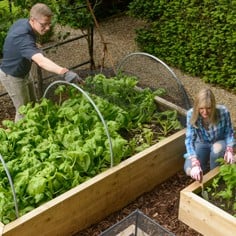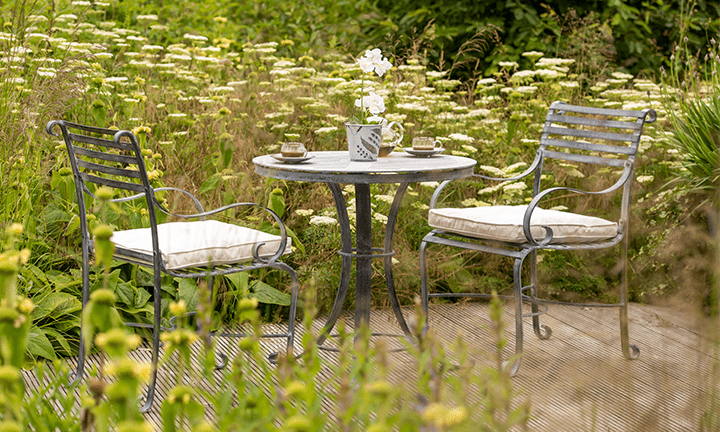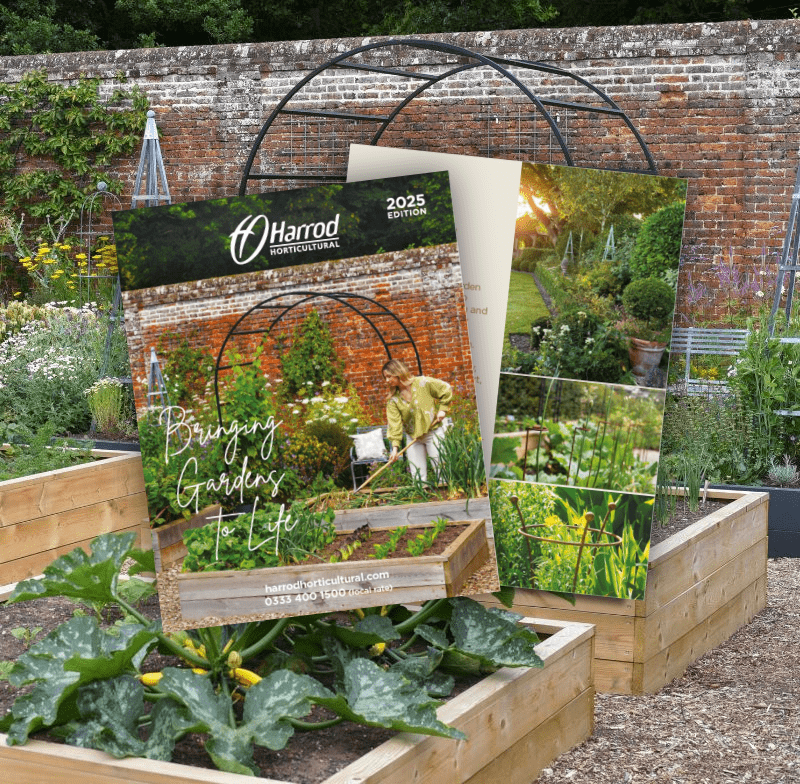In the past few years, more and more people have found themselves struggling with mental health and overall wellbeing. While no one solution fits all, gardening has been widely recognised as a powerful way to nurture both body and mind. Whether you have a large garden, a small patio, or just a few pots on a balcony, getting your hands in the soil can be a life-changing experience.
The benefits of gardening for mental health are well-documented. Studies have shown that spending time in your outdoor space can help reduce feelings of depression, anxiety, and anger, while also lowering stress levels and even high blood pressure. And it doesn’t stop there—gardening is a physical activity that can improve fitness, sleep, and overall happiness.
_4155.jpg)
A study by Compare the Market revealed that:
- 42% of Brits enjoy gardening.
- 35% say gardening helps them relax.
The connection between gardening and relaxation only deepens with age:
Just over 35% of 25 to 34-year-olds enjoy gardening, and 24% say it helps them relax.
51% of people aged 55+ enjoy gardening, with 47% reporting it helps them unwind.
So, what is it about planting seeds, pulling weeds, and caring for plants that makes us feel so good?
A Sense of Accomplishment
In a world that can sometimes feel chaotic, gardening gives you a chance to bring order and beauty to your surroundings. Whether it’s watching a flowerbed take shape with colour or harvesting vegetables you’ve grown yourself, the sense of achievement is undeniable. Taking pride in nurturing something from seed to table can boost your self-worth and give you a positive focus.
A Workout for the Body and Mind
Gardening may be more physical than you think. Weeding, digging, and pruning all get your body moving, giving you a healthy dose of physical exercise. Not only is it a full-body workout, but exercise is also a proven way to reduce stress, anxiety, and depression. And when you sleep better after a day of working in the garden, you’re giving yourself another key tool for mental wellbeing.
Reconnecting with Nature
Few things calm the mind like immersing yourself in nature. Spending time outdoors, soaking up Vitamin D, and appreciating the beauty of your own green space—whether a sprawling garden or a few pots on the balcony—can help alleviate stress and boost your mood. Nature has a way of grounding us, offering a peaceful escape from the fast pace of daily life.
A Therapeutic Activity
Focusing on the present moment, whether you’re planting, pruning, or mowing, can help quiet the mind. Gardening allows you to leave behind the daily worries that might be weighing you down, and instead, lose yourself in the task at hand. It’s a therapeutic practice that can help bring balance to both body and mind.
Gardening is for Everyone
One of the most beautiful aspects of gardening is its inclusivity. Young or old, experienced or beginner, everyone can enjoy the benefits of gardening. There’s no judgement from your plants—just an invitation to nurture and care for something living, while reaping the personal rewards.
A Family Affair
Gardening isn’t just for solo relaxation—it’s a fantastic way to bond with loved ones too. The joy and stress relief that comes with gardening can be shared with the whole family, making it a fun and healthy activity for everyone. For children, it’s also a great learning experience, with benefits ranging from reducing allergies to boosting creativity.
These are just some of the many ways that gardening can enhance your mental health and wellbeing. So this World Mental Health Day, why not pick up a trowel, step outside, and let your garden work its magic? You'll soon discover the powerful effects that even a little time spent in nature can have on your mind and body.



























